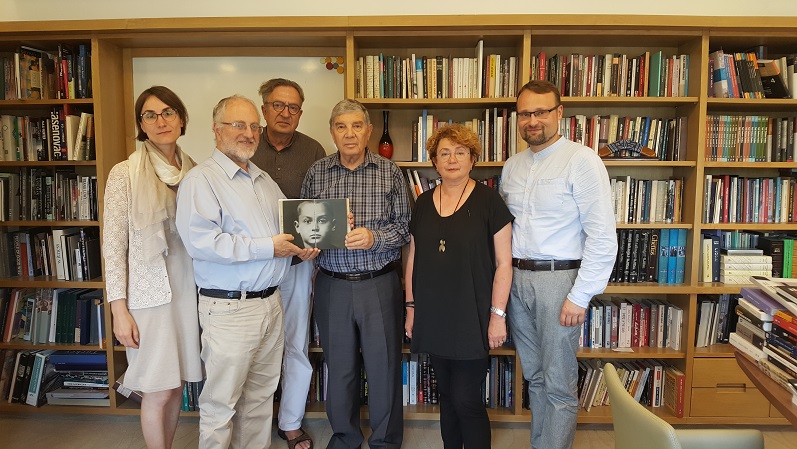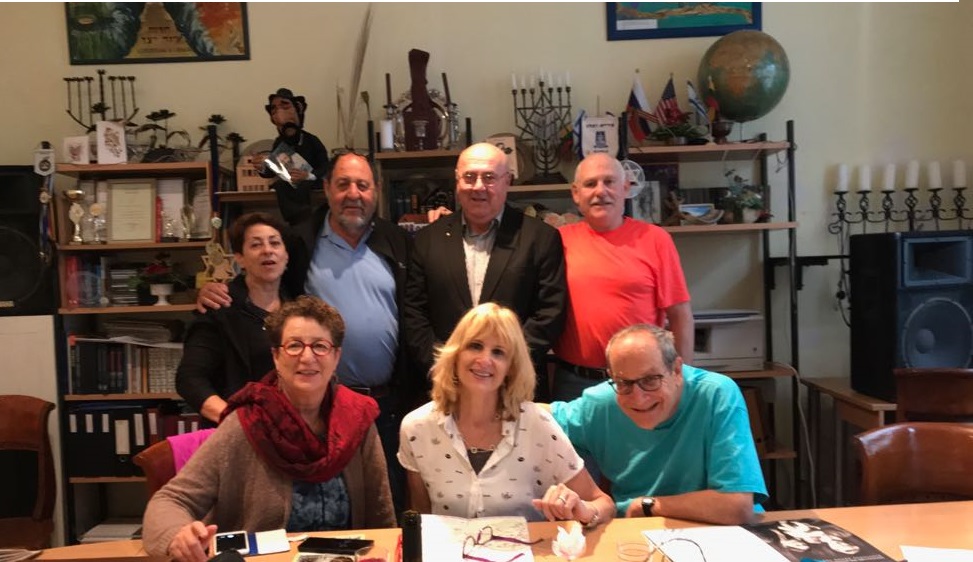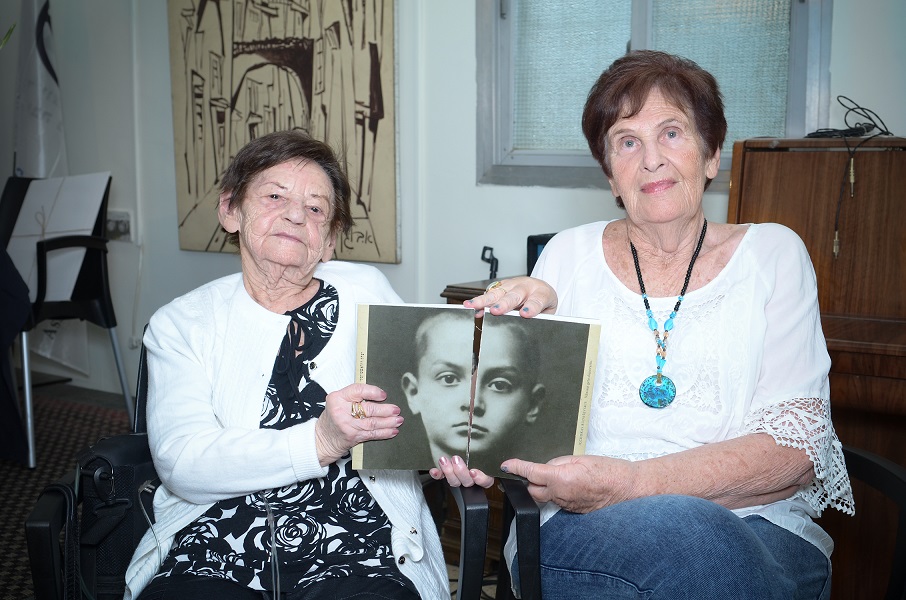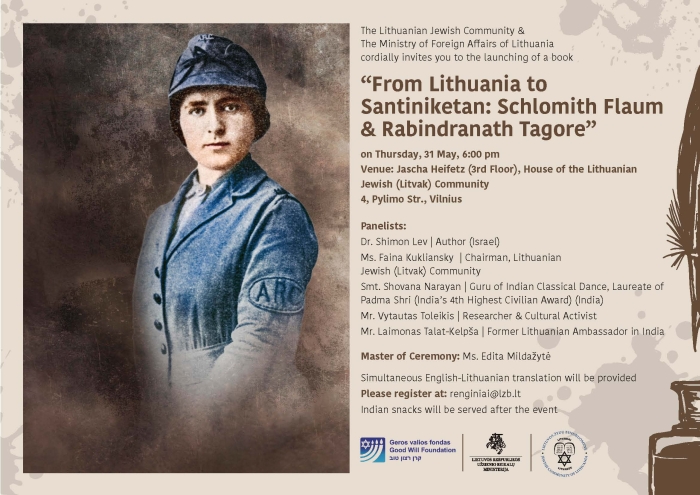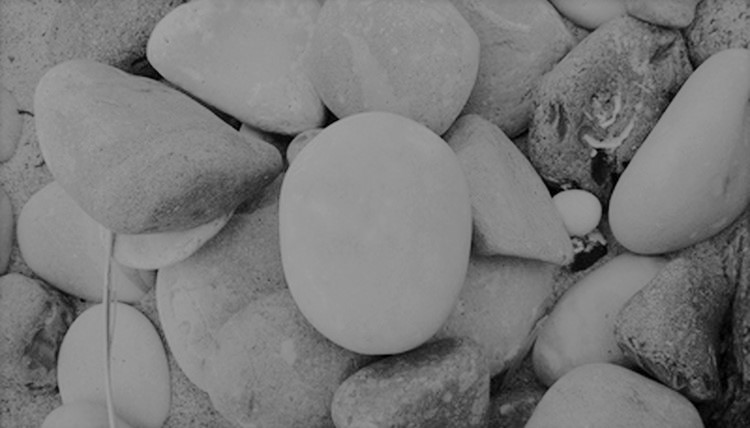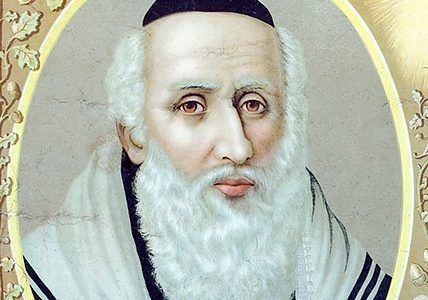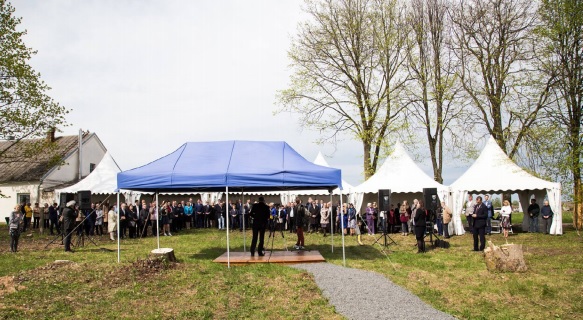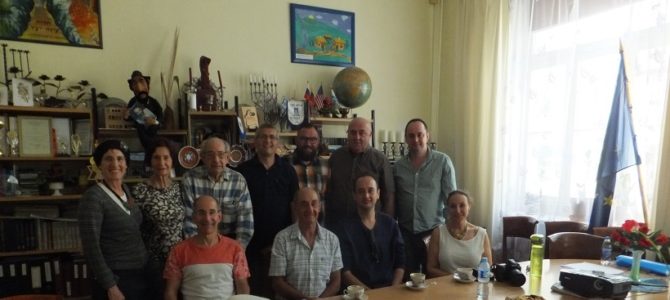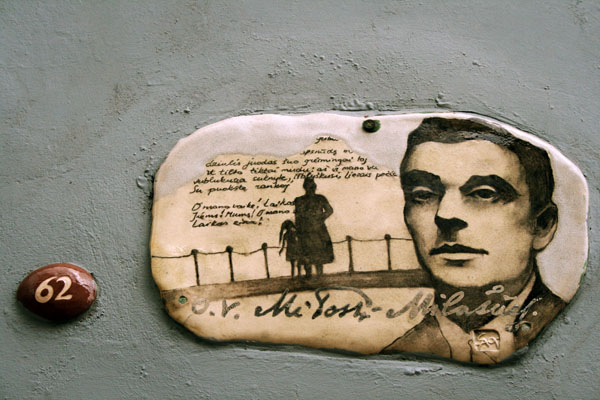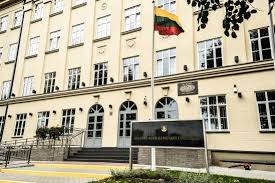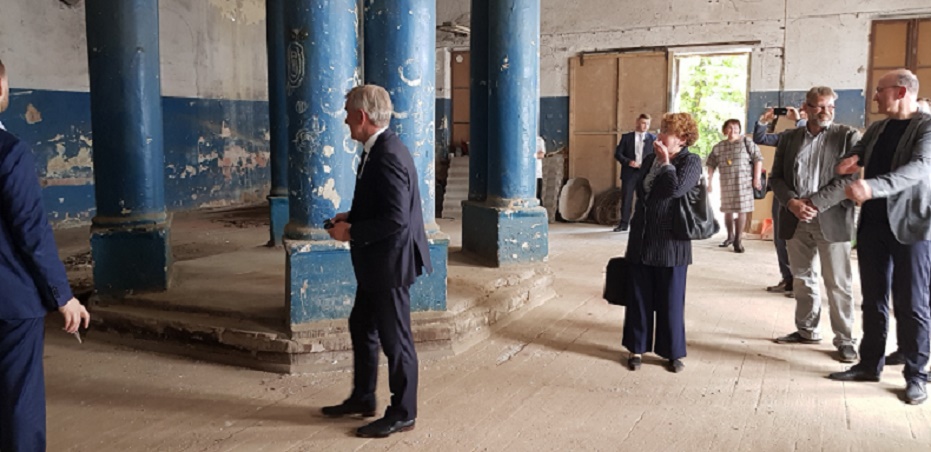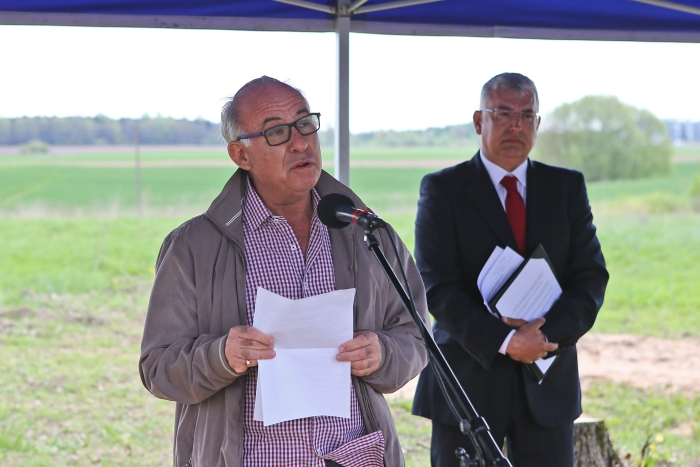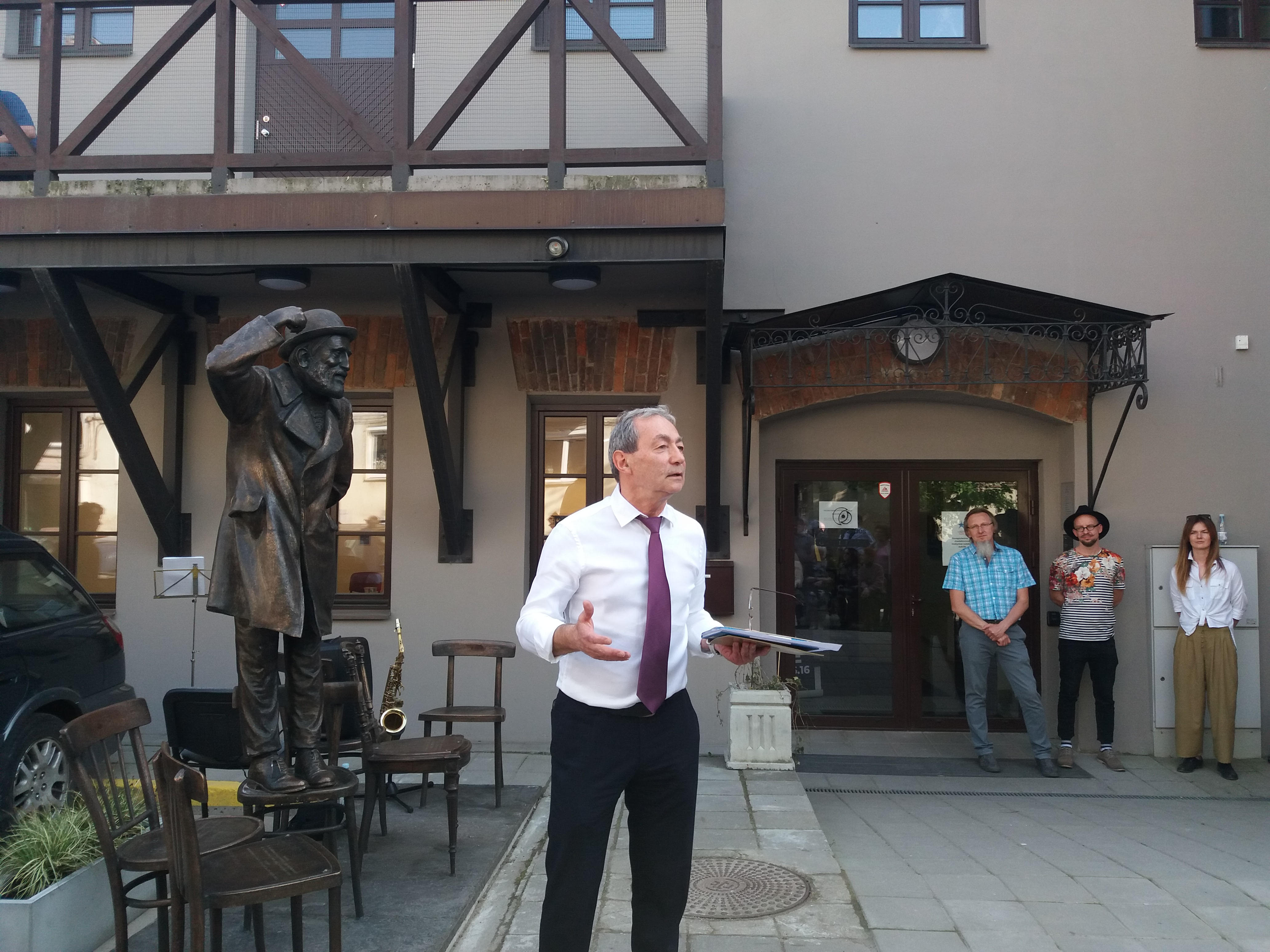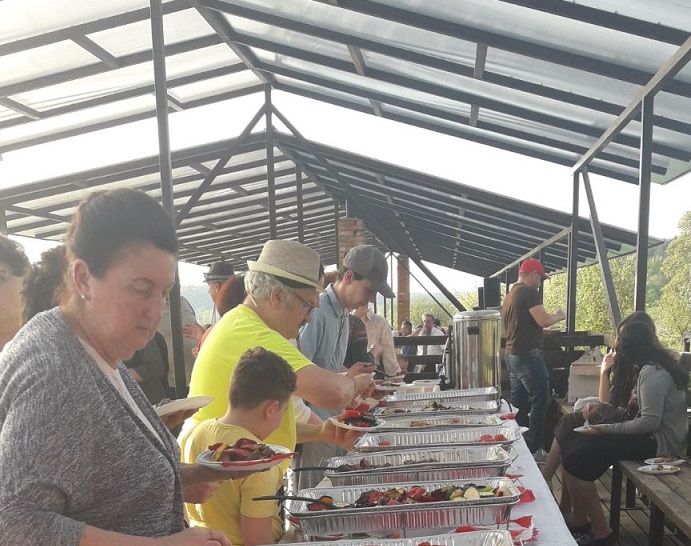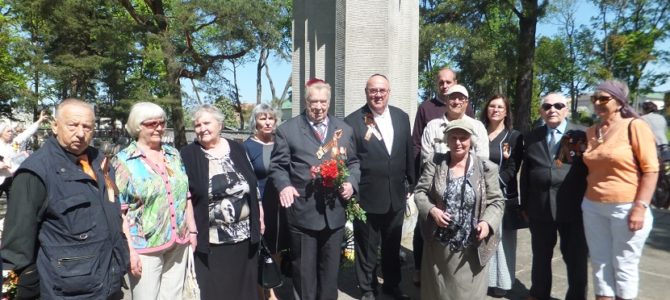
Members of the Panevėžys Jewish Community together with Panevėžys city residents came to the memorial to the unknown solider on the warm and sunny morning of May 9. The memorial contains the mortal remains of soldiers who fell in the city and region of Panevėžys from 1941 to 1945. They came to mark Victory Day, when Nazi Germany capitulated to the Allies 73 years ago, celebrated in the West on May 8 as Victory in Europe Day because of time-zone differences.
People of all ethnicities suffered during World War II, but as a percentage the Jewish people lost the most members of their population. Panevėžys residents and members of the Jewish community laid wreaths and lit candles at the monument marking the location of the Panevėžys ghetto gates. Everyone observed a minute of silence for the victims of the Holocaust in the city and region, where more than 13,000 Jews were murdered. Also attending were Russian embassy advisor L. Nikolai Yurevich and Belarusian embassy advisor Aleksandr Ignatenko. Both wished everyone present peace.
Panevėžys Jewish Community chairman Gennady Kofman welcomed and greeted everyone on the occasion of Victory Day, and noted next to the monument where everyone had gathered once existed the Panevėžys ghetto, where more than 10,000 people were held before being murdered in surrounding forests.
The chairman also spoke about Lithuanians who had risked everything to save Jews from death. He also noted the Panevėžys Jewish Community has a member, Yefim Grafman, who survived the Nazi blockade of Leningrad, and that Yuri Smirnov had cheated death and survived the Holocaust through a miracle. The chairman thanked all present for not forgetting the holiday and for remembering the soldiers who fell fighting for our lives. He wished everyone peace, good health and success.
Later members gathered at the Jewish community building and recalled the fates and heroism of their fathers, grandfathers and great-grandfathers who fought the Nazis and died during World War II. Members took away memories of the dead and the undying hope such things will never happen again.
